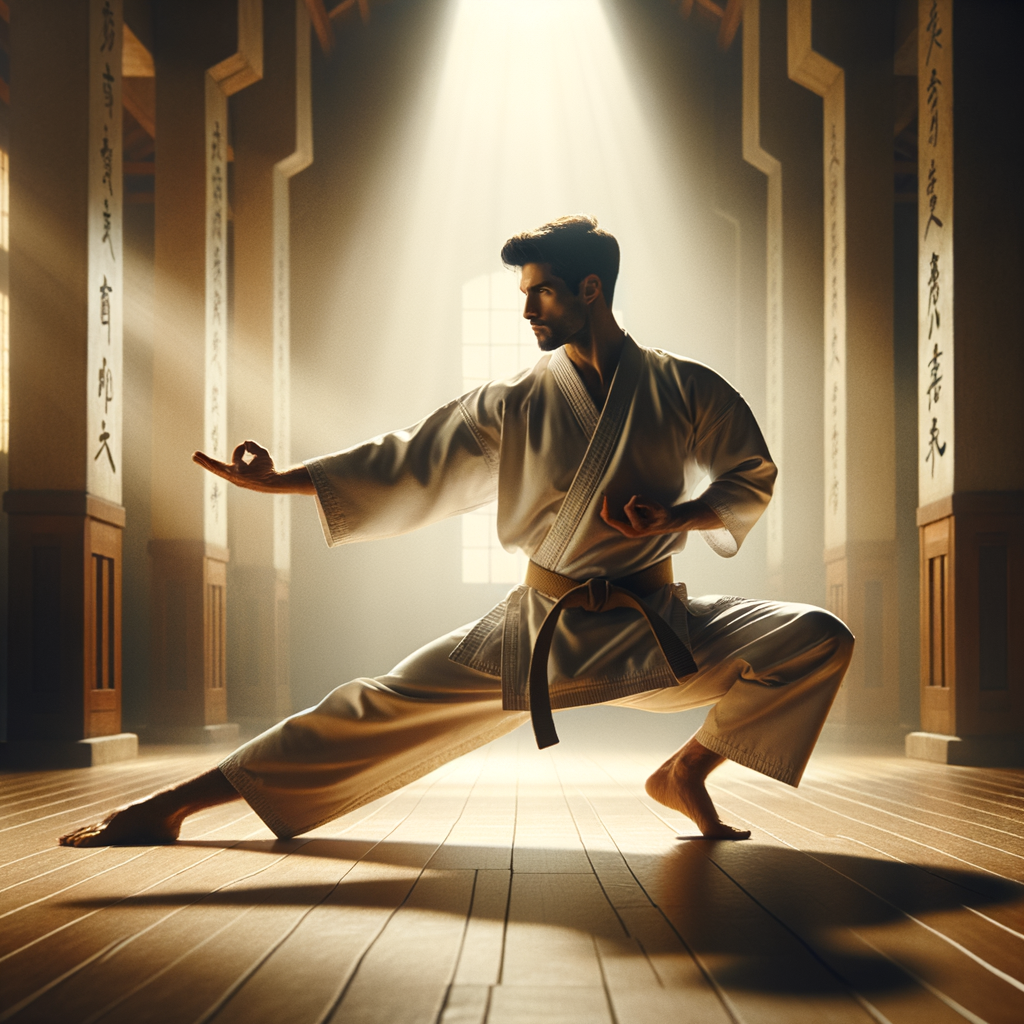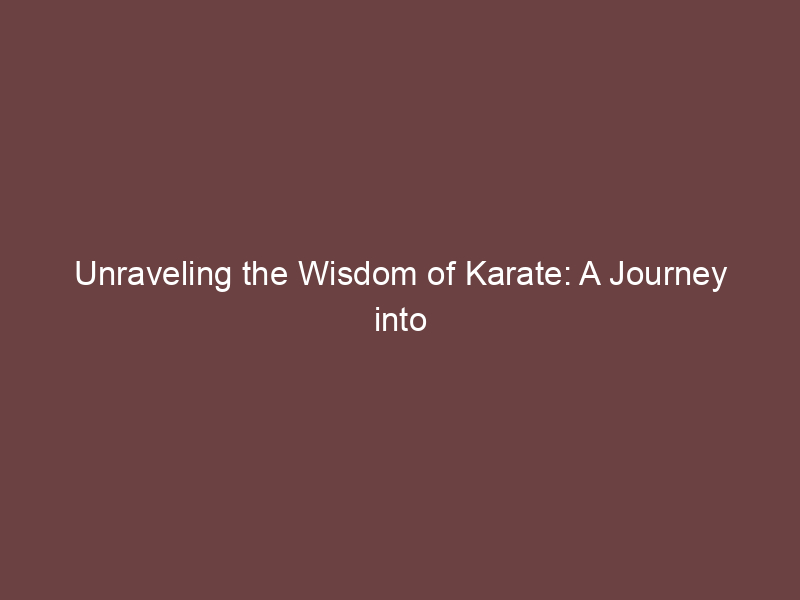
Introduction to Karate Philosophy
Karate is more than just a martial art; it’s a way of life. Its philosophy is deeply rooted in values such as respect, discipline, and self-improvement. Let’s delve deeper into the world of Karate and explore its profound philosophy.
- Understanding the Depth of Karate
- Exploring the Philosophical Side of Karate
Karate, which translates to “empty hand,” is not merely about physical strength or fighting skills. It’s about the journey of self-discovery, discipline, and respect. The depth of Karate is seen in its teachings that extend beyond the dojo (training hall). It’s about developing a strong character, enhancing self-esteem, and promoting a healthy lifestyle.
Did you know that Karate is practiced by over 100 million people worldwide? This statistic showcases the global appeal of this martial art and its deep-rooted philosophy.
The philosophy of Karate is based on the principles of Bushido, the way of the warrior. It emphasizes virtues like integrity, courage, respect, and benevolence. The ultimate goal of Karate is not to win fights, but to develop a balanced and harmonious spirit.
One of the most famous quotes about Karate philosophy comes from Gichin Funakoshi, the father of modern Karate: “The ultimate aim of Karate lies not in victory or defeat, but in the perfection of the character of its participants.” This quote perfectly encapsulates the philosophical side of Karate.
In the next section, we will delve deeper into the core principles of Karate and how they shape the practice and lifestyle of its practitioners.
Core Principles of Karate
As we delve into the heart of Karate, we discover a rich tapestry of principles that guide its practice. One of the most fundamental of these principles is respect.
The Principle of Respect
Respect, in Karate, goes beyond mere politeness. It is a deep-seated understanding of the value of others and oneself. Let’s explore this principle further.
- Understanding the importance of respect in Karate: Respect forms the backbone of Karate. It fosters a positive learning environment, encourages discipline, and cultivates humility.
- How respect is practiced in Karate training: Respect is shown in many ways, from bowing to your opponent to listening attentively to your instructor. It’s about recognizing the worth of every individual in the dojo.
- Exploring the role of patience in mastering Karate techniques: Patience is another key aspect of respect. It’s about understanding that mastery takes time and respecting the process.
- Case study: How patience leads to progress in Karate: Consider the story of a young Karate student who, despite initial difficulties, patiently practiced and eventually mastered a complex technique. This case study underscores the importance of patience and respect for the learning process.
- Introduction to basic Karate techniques: Basic techniques like punches, kicks, and blocks are the building blocks of Karate. Mastering these requires patience, practice, and respect for the art.
- Key takeaways for beginners: Beginners should understand that respect and patience are as important as physical strength in Karate. Without these virtues, progress will be slow.
- Exploring advanced techniques in Karate: Advanced techniques, like combination moves and kata, require a deeper level of respect for the art and oneself. They demand patience, precision, and a lot of practice.
- How to master these techniques: Mastery comes with time, practice, and a deep respect for the process. It’s about understanding that every failure is a step towards success.
- Understanding the philosophy behind martial arts: Martial arts are not just about fighting; they are about self-improvement, discipline, and respect for others and oneself.
- How Karate embodies this philosophy: Karate, with its emphasis on respect and discipline, perfectly embodies the philosophy of martial arts.
- Understanding the concept of continuous improvement in Karate: Karate is a journey, not a destination. The principle of continuous improvement, or ‘kaizen’, is central to this journey.
- Examples of this principle in action: Every time a Karateka practices a kata, they strive to do it better than the last time. This is ‘kaizen’ in action.
- Exploring the unity of mind and body in Karate: Karate is not just a physical activity; it’s a mental discipline too. The unity of mind and body is a key principle in Karate.
- How this principle affects Karate training: This unity allows Karatekas to perform complex techniques with grace and precision. It also helps them stay focused and disciplined.
- Why philosophy is important in martial arts: Philosophy gives depth to martial arts. It transforms them from mere fighting techniques into paths of self-improvement and self-discovery.
- How philosophy shapes martial arts training: Philosophy guides the training in martial arts. It instills respect, discipline, and a constant quest for improvement.
- Understanding the discipline philosophy in Karate: Discipline in Karate is about self-control, perseverance, and respect for the rules. It’s about mastering oneself before attempting to master others.
- How discipline is practiced in Karate: Discipline is practiced through regular training, adherence to dojo rules, and respect for instructors and fellow students.
- Key takeaways from the journey into Karate’s core principles: Respect, patience, continuous improvement, unity of mind and body, and discipline are the core principles of Karate. They guide the practice and give it depth and meaning.
- Final thoughts on the wisdom of Karate: Karate is more than a martial art; it’s a way of life. Its principles guide not just the physical training, but also the personal development of the practitioner. It’s a journey of self-discovery and self-improvement.






